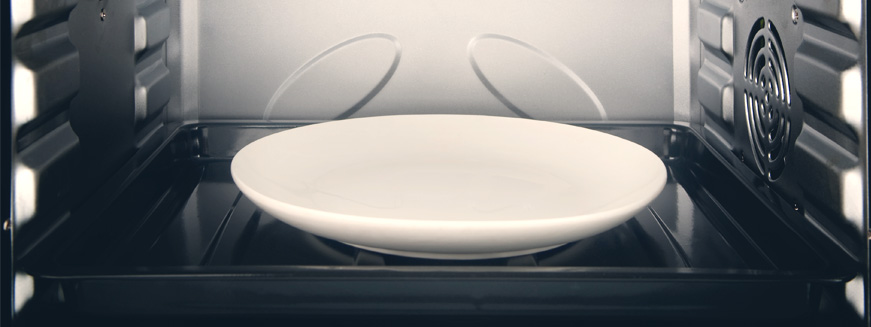The Fresh Blog
Lifestyle, Health, Nutrition & Inspiration from Luvo
Microwave Myth Busters
Microwaves are ubiquitous in kitchens today, both in homes and restaurants. They are one of the most energy-efficient and fastest ways to heat food, making them ideal for warming leftovers and thawing frozen items. But if you Google “microwaves,” you get a whole universe of hits about their hazards, along with confusing information about how they work. Sorting out the truth from the turkey can be tough. We can help.
How do they work?
Let’s start with the basics. Microwave ovens project non-ionizing electromagnetic radiation, causing your food’s water molecules to move around and heat up. As noted by the Health Physics Society, a nonprofit scientific professional organization dedicated to radiation safety, microwaves are useful for cooking because of two traits: their waves are absorbed by food, and they pass easily through glass, paper and other containers that make heating food convenient.
Are they safe?
“Yes.” That’s the consensus among public health organizations, government bodies and other scientific experts, as long as you’re using them according to the operating instructions and safety protocols. Common sense helps too. Microwaves can leak radiation—like cell phones—but the amount is strictly regulated by government bodies such as the Food and Drug Administration, and it’s nowhere near a level that would harm people. Still, it’s not a good idea to use a microwave if the door is damaged or doesn’t close properly, or if you think the microwave will continue to operate even if the door is open.
Do they make food less nutritious?
Microwaves do not alter the nutritional value of food any more than other types of cooking. All cooking alters the makeup of foods to some extent, and some methods are better than others. Think about boiling vegetables in water, which tends to leach some of the nutrients out. Since microwaves heat your food without adding water, and they do it quickly, they can actually do a better job of preserving the nutrients. Microwaves are especially good at heating vegetables, which tend to contain a lot of water.
What else should I know?
Microwaves are pretty magical, but they can’t do everything. They don’t heat oils well, they aren’t great for caramelizing foods like onions, and heating plastic in the microwave is generally not recommended. Even if a plastic container says “microwave safe,” it’s probably best to use a ceramic or glass dish. Microwaves are an untapped resource for cooking a variety of amazing dishes, quickly and healthfully. Or, if you’re into snacks, try these out, but only for special occasions.


